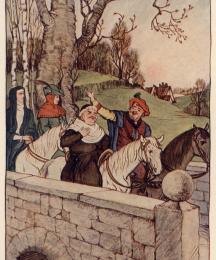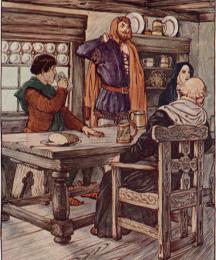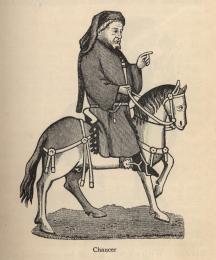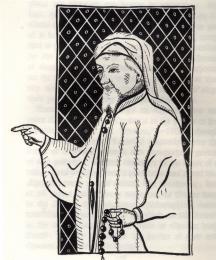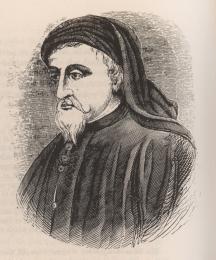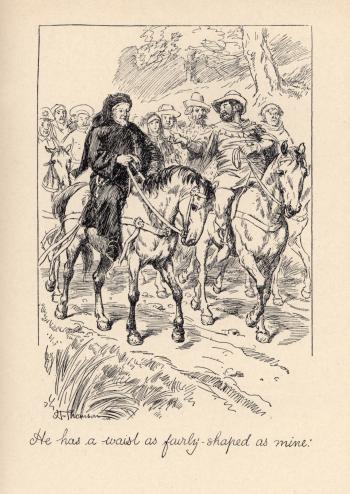
"Til that oure Hooste japen tho bigan,
And thanne at erst he looked upon me,
And seyde thus: 'What man artow?' quod he;
'Thou lookest as thou woldest fynde an hare,
For evere upon the ground I se thee stare.
Approche neer, and looke up murily.
Now war yow, sires, and lat this man have place!'"
The Chaucer pilgrim starts by telling the tale of Sir Thopas, a romance that is interrupted by the Host, who declares that Chaucer's "rymyng is nat woorth a toord!" (2120). Instead, Chaucer turns to the long, moral prose tale of Melibee.
And thanne at erst he looked upon me,
And seyde thus: 'What man artow?' quod he;
'Thou lookest as thou woldest fynde an hare,
For evere upon the ground I se thee stare.
Approche neer, and looke up murily.
Now war yow, sires, and lat this man have place!'"
The Chaucer pilgrim starts by telling the tale of Sir Thopas, a romance that is interrupted by the Host, who declares that Chaucer's "rymyng is nat woorth a toord!" (2120). Instead, Chaucer turns to the long, moral prose tale of Melibee.
Bibliography
Chaucer, Geoffrey. The Riverside Chaucer . Ed. Larry D. Benson. 3rd ed. Boston: Houghton, 1987.
Ford Madox Brown (1821 - October 6, 1893)
Edward Coley Burne-Jones (1833 - June 16, 1898)
Sir W. Russell Flint (1880 - 1969)
Pier Paolo Pasolini (1922 - November 2, 1975)
Hugh Thomson (1860 - 1920)
Milo Winter (1888 - August 15, 1956)
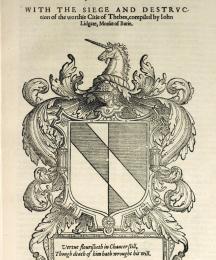
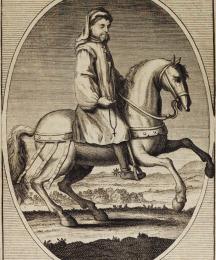
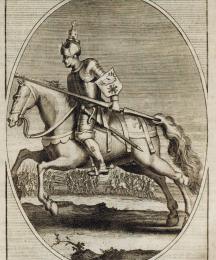
Ford Madox Brown (1821 - October 6, 1893)
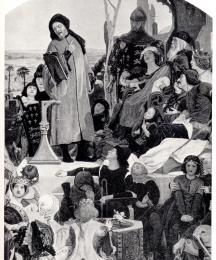
Edward Coley Burne-Jones (1833 - June 16, 1898)
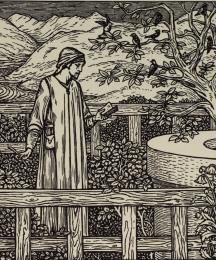
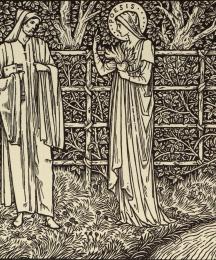
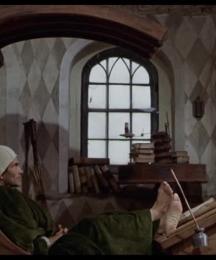
Sir W. Russell Flint (1880 - 1969)
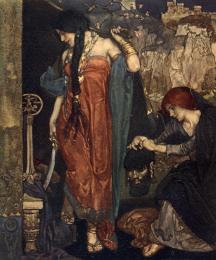
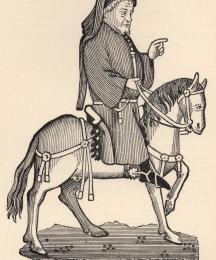
Pier Paolo Pasolini (1922 - November 2, 1975)

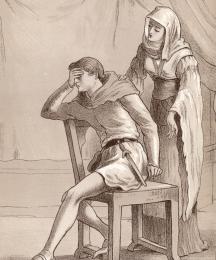
Hugh Thomson (1860 - 1920)
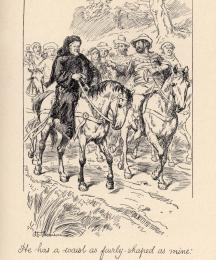
Milo Winter (1888 - August 15, 1956)
